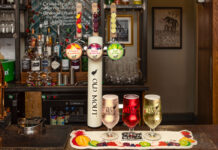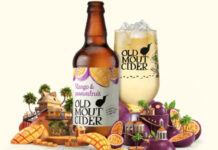Even when profits are under pressure, don’t cut corners in the cellar

THE early part of the year can be a good time to take stock and have a think about what’s being done right and what could be done better.
Unfortunately, this period often coincides with another constant for the licensed trade: price rises.
As profits are squeezed from every side, licensees could be tempted to try and cut costs wherever they can.
But any licensee who cuts costs in the cellar does so at their peril.
Cellar management specialists have warned licensees against any slackening of standards in the cellar at a time when customer expectations are higher than ever.
“There is no point in cutting costs if it also impacts profits, and in this day and age nothing is going to lose you customers quicker than poor quality,” said Stephen Trezona, managing director of Clear Brew.
“Therefore, good cellar management practices and staff training should always be a priority.”
Simon Gray, dispense manager at Heineken UK, agreed, saying that, while well-trained and knowledgeable bar staff can go a long way to establishing an outlet’s reputation, “all that hard work will have been for nothing if the quality of the pint isn’t up to scratch”.
Firms advised licensees to adopt a rigorous cleaning schedule to ensure their cellars are in the best shape possible.
Trezona recommended pub and bar operators assign a set day every week for line cleaning and general maintenance and to keep a checklist of all the related tasks, such as checking gas levels, coolers and keg dates.
“Maintaining these things regularly can save you dealing with issues when you have a bar full of impatient customers,” he said.
The cellar itself should also be cleaned regularly, according to Gray at Heineken UK.
In this day and age nothing will lose you customers quicker than poor quality.
“Essentially, the cellar is a food preparation area and should be treated as such,” said Gray.
“Spills must be mopped up immediately, drains and sump pumps kept clear and the floor and walls washed thoroughly every week – although it is recommended that you steer clear of strong smelling cleaners as these can affect the taste of the beer.”
An unclean cellar can also increase the chance of beer flies setting up home in a premises, which is sure to dissuade customers from returning.
Alistair Dowds, technical manager at Brewfitt, advised operators to avoid storing any food in the cellar and to act quickly if any beer is spilled anywhere in the venue.
Likewise, bar mats and runners should be washed daily and nozzles and flow straighteners washed in warm water and replaced on taps.
“Where flies are present a simple trap can be made by filling a jar with vinegar and very ripe fruit then placing a paper cone in the jar’s mouth,” said Dowds. “The flies may enter but not leave.
“Consider an electronic fly zapper and seek professional advice if the problem persists.”
The importance of maintaining the right cellar temperature of between 11°C and 13°C was also stressed by firms.
Licensees needn’t make this harder than it needs to be, however, and Steve Lakin, national customer relationship manager at Innserve, advised against filling the cellar with equipment such as chest freezers, ice makers or fridges as these will cause the cooling system to have to work harder.
“It is good practice to install a thermometer in order to monitor the temperature, not only to check that the cellar is cool enough, but because over-cooling by just 1°C increases energy usage and costs by around 10%,” said Lakin.
Finally, a licensee who prioritises cellar management shouldn’t be shy in promoting that fact to customers.
Dowds at Brewfitt said operators should “make a point of displaying any cellar management qualifications”.























